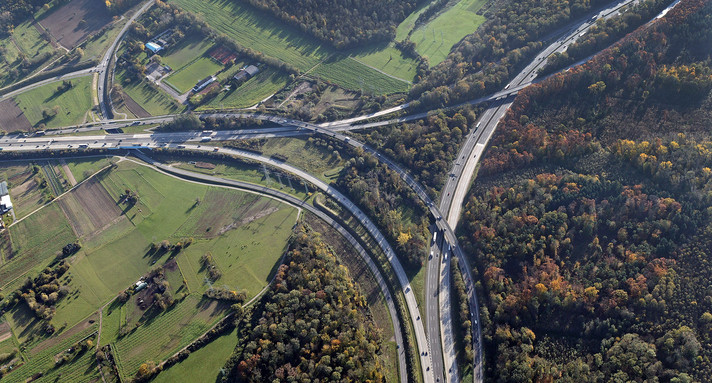Baden-Württemberg is proud of its outstanding transport links with its well-developed road network. The days of increasing traffic figures are slowly coming to an end, which is partly due to demographic changes. In the future, buses, trams and trains will have to handle a larger share of traffic volume within the scope of sustainable mobility de-velopments. The need to expand the road network is thus restricted to the busy major roads and road junctions, as well as the construction of local bypasses to reduce traffic volumes for residents.
The biggest challenge is the renovation and modernization of infrastructure. The construction of roads, bridges and tunnels over the past decades has resulted in a large number of resources that have seen better days and are in need of an overhaul. The funds available for this have been considerably drastically in recent years. The renovation backlog has been significantly reduced; nevertheless, a lot of money will be required to renovate bridges, retaining walls and tunnels in the coming years.
When planning road construction and in connection with the implementation concept, the impact of traffic on humans and the environment is regarded as an independent criterion.
The elimination of bottlenecks in the road network does not necessarily demand expanded or new roads. Intelligent traffic management, such as the temporary opening of the hard shoulder, traffic telematics and solutions from mobility services, can help in reducing traffic jams.
Many investments are being made in the construction of federal motorways at the moment. The road construction authority is currently focusing its efforts on benefiting to the greatest possible extent from the good financing conditions.

